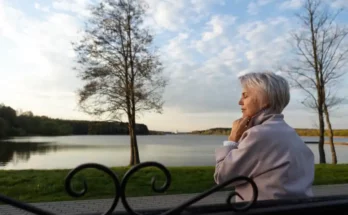SILANG, Philippines — The cash-strapped Philippines has been aggressively wooing Japanese retirees to spend their sunset years in the country, banking on its close proximity to Japan and lower cost of living as incentives.
;
A new 32-hectare « retirement haven » is being developed in Silang, an idyllic town 43 kilometers south of Manila near the mountain resort of Tagaytay city.
The « model village » of quaint houses and condominiums is nestled amid rolling hills and a lush landscape.
;
« Our target is the baby boomers that will start retiring in 2007, » said Takayuki Kuroda, chair of Asian Human Power Network. He said the Philippines is the ideal retirement spot for Japanese due to its mild climate and it being only about a four-hour plane trip from Japan.
;
So far 25 fully furnished houses and four condos have been erected in the vast former coffee plantation and developers say the 5 billion yen project will be completed by March 2008.
Three Japanese retirees have now made the village, dubbed Philslife Orchid Hills Club, their new home.
;
A Japanese teacher also lives in the village to teach Filipino staff the Japanese language in anticipation of the influx of Japanese pensioners in the next few years.
Pensioners who wish to make Philslife Orchid Hills Club their next home have to shell out $108,150.
Yutaka Abe, 57, a retired employee from the city of Takahagi in Ibaraki Prefecture, is among three Japanese retirees who have decided to live in the village.
;
« We like the mild weather here, » said Abe, a former accountant at a Japanese company.
« The Japanese retirees come here because it’s safe. They come here because there are a lot of things they can do. They come because it’s a healthful and dignified retirement that they can spend, » said Ricardo Puno, president of Philslife Foundation Inc., in an interview.
;
Jimmy Angeles, operations manager for Philslife Services Inc, said now is the best time to set up the « retirement village » for Japanese who may wish to retire in the Philippines.
« Most retirees want to remain active. They want to have a more meaningful, productive and fruitful life. They worked very hard so they deserve a good life after retirement, » Angeles said.
« We address the total well-being of the retirees. What we envision is a self-contained village. Japanese retirees will have an active lifestyle in the village. They can participate in many activities that we have stored for them, » he added.
;
The programs include growing organic food fruit and vegetables, raising cattle and poultry and cultivating rare species of cut flowers such as orchid for export to Japan and other countries.
« We will also introduce modern food processing and Japanese brewing and fermentation techniques, » said Angeles, adding the retirees are being encouraged to share their skills and expertise with their Filipino neighbors.
;
Other possible activities include ballroom dancing, stargazing, arts and crafts activities such as knitting, cooking, bead-making, pottery making and painting, he said.
For sports and recreation activities, the developers are looking at trekking, scuba diving, cockfighting and tree planting.
;
« This is the second part of their life, so we want to make it more meaningful and exciting for them, » Angeles said. « Here they can continue to live a productive life while living a meaningful and harmonious coexistence with both nature and the local community. »
Aside from residential houses, the village will have sports and recreational establishments, health centers, schools, training and research centers, business centers, farms and gardens and even manufacturing and processing plants.
;
Leonarda Garcia of the Philippine Leisure and Retirement Authority said, « Our office has been getting more and more applications each year for special resident retiree’s visas. There is indeed a growing trend in the last three years. »
;
The retiree visas are nonimmigrant multiple entry visas issued by the Bureau of Immigration through the retirement program of the authority to foreigners and former Filipinos.
;
It entitles the holder to multiple-entry privileges with the right to reside permanently in the Philippines.
Since 1987, Garcia said 999 Japanese have « enrolled » in the program.
;
« We will be starting this month an aggressive marketing campaign to lure more Japanese pensioners and retirees from other countries such as Taiwan, China and South Korea to make the Philippines their second home, » Garcia said.
;
Source : Jtoday




